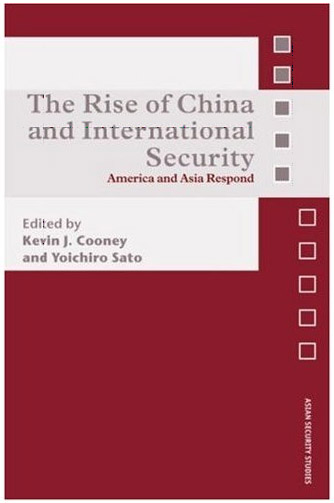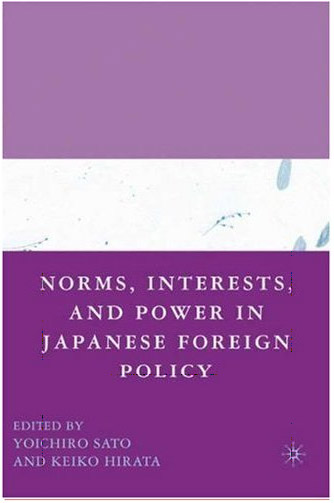By Tamara Patton
Two of Dr. Yoichiro Sato’s long anticipated publications were recently released this month. He has been working on the two books for many years, and in both efforts, he played the fundamental roles of editor and research project coordinator.
The Rise of China and International Security, presents a myriad of regional views on China’s rise as well as a comprehensive analysis of its implications to the East Asian region and beyond. “The book looks at other countries’ perceptions of China’s rise as well as their relations with China, with each chapter of the book being written by an expert on the foreign policy of China’s various neighbors,” Sato described. The book’s publisher explains that this compilation depicts how the growth and integration of China has exposed its closest neighbors and even more remote countries to its various (previously internal) problems, as well as how the lagging political openness of China has often negatively impacted cooperation with other countries in dealing with these problems (i.e. trans-border pollution, epidemics, illegal migration, organized crime, financial management, etc.). Sato’s publisher also added that the book goes several steps further than the dichotomous debate between the American realists and liberals, adding finesse to the often simplified discussions on how to deal with the rising China.
Sato’s second publication, Norms, Interests, and Power in Japanese Foreign Policy, looks beyond Japan’s bilateral relations and explores the country’s foreign policy in terms of security, economic, and environmental policy on an international scale. According to the publisher, this edited volume explains the impact of norms on Japan’s foreign policy behavior, drawing on three major paradigms of international relations scholarship-constructivism, realism, and liberalism. Through nine case studies, the book examines how norms impact Japanese foreign policy and how they interact with interests and power. “The book digs into academic and theoretical debate and tries to harness discussions of policy with academic theories and approaches in the broader study of international relations,” Sato said.
For both projects, Sato was charged with choreographing the efforts of his team of experts into seamless works that will be of great interest to students of Asian Politics, Security Studies and International Relations, as well as decision makers beyond the academic domain.
Sato dedicates his Japanese foreign policy book to the two professors he and his co-editor, Keiko Hirata, were inspired by during their graduate school years. Also, because Sato has been obligated by these intense projects for many years, he dedicates The Rise of China to his children and the children of his co-editor, Kevin Cooney, “for the time they could otherwise have been playing with their dads.”
-end-
(see below for book cover graphics)


The views expressed in these articles are those of the authors and do not reflect the official policy or position of APCSS, the U.S. Pacific Command, the U.S. Department of Defense, or the U.S. government.






Leave A Comment